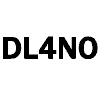
Information Gathering and Distribution |
|
I found one extremely important topic in connection with EMCOMM that hasn't been addressed at all: general information gathering and distribution. Many radio amateurs are better equipped for this than almost anyone else. We have extremely high-quality receiving systems and know how to use them. We also know how shortwave works, for example. We can receive weather satellites and weather reports or monitor flight movements using ADS-B – to name just a few free sources of information we can tap into. Spreading knowledge about shortwave broadcastingThese days you can buy battery-operated radios for under EUR 20 that can receive shortwave in addition to FM. AM (medium wave) might be available in some countries, but not in central and northern Europe. Every household should have a radio that runs on batteries. But you have to know how to use them. So, the first step is to motivate our fellow citizens to buy such devices. Everyone can probably handle FM, but during a prolonged power outage, things can get pretty quiet pretty quickly. Hardly anyone can handle shortwave. These very cheap receivers are also extremely critical when tuning to a station. Luckily they are all digital systems so mirror reception is no topic. These receivers are also very bad at coping with large signals as they have absolutely no preselection – perhaps besides a simple 120 MHz lowpass filter. This should be no great problem during a power outage, but be warned. These receivers usually have station buttons, which need to be programmed. Programming these station buttons would be our job. You could research at https://short-wave.info/ which stations are still broadcasting for your area on which frequencies. Example: BBC World Service on 6.195 MHz. Other candidates for Europe: 5.905, 5.920, 5.940, 5.960, 6.005, 6.030, 6.070, 6.155, 6.180, 7.365 MHz. If we experience a prolonged power outage, various special broadcasts are likely to appear on shortwave. If we also program a frequency in an amateur radio band, we could even broadcast news for the neighborhood. Yes: We are not allowed to broadcast, and we are actually not allowed to transmit AM signals anymore either. But I am talking about emergency radio here, after a state of emergency has been declared. The only alternative would probably be to relay the messages via PMR radio. Gathering information in an emergencyThere are even handheld radios with quite usable shortwave reception. Regularly scanning the bands and taking notes really should not be difficult for a radio amateur. Anyone with an SDR should regularly scan the VHF broadcast range with a bandwidth of 80 kHz. Of course, reception will be scratchy, but you will gain 6 dB of sensitivity and be able to dig out signals that would otherwise be completely suppressed by transmitters 100 kHz away. An EMCOMM group could assign tasks like these to members, who would then regularly compile a situation report: how large is the affected area, how far away are emergency services, what are the specific dangers. This is no phantasy as CT7/HB9AAP writes [1]. He was at the CT/EA border during the blackout on 28 April 2025: AM radio switched off, FM radio offline, UHF repeaters offline. No information at all for 12 hours. Passing on informationIf an EMCOMM group can be found, it could organize a monitoring service so that a new situation report can be disseminated every few hours. The situation report could be recorded into a voice memory at a relay station. Further possibilities could arise from cooperation with the local community: One could agree on a framework and post a leaflet in the local bulletin boards twice a day. However, this would require a regular message in the community newsletter: When a siren sounds, visit the community website or check the notices in the bulletin boards. Another option would be to connect the receiver to a pressure chamber loudspeaker outside the window. However, this poses a rather significant problem: exposing oneself in an emergency situation. Being prepared like this could also mean having supplies. When the children are hungry and thirsty, even the most staunch family man becomes a hyena. Sorry, but we cannot really help here! Sources
|
|
Alexander von Obert * http://www.dl4no.de/thema/informa1.htm Letzte Änderung: 25.07.25 (first edition) |
EMCOMM
| EMCOMM Basic Facts |
| Information Gathering and Distribution |
| Minimal, Individual Preparation for EMCOMM |
| Configuration of an EMCOMM Power Supply |
| Computers for EMCOMM |
| Three Years 'EMCOMM Ready' |